The findings of the Working Group on Lessons Learned and Best Practices on Women's Programming in Transitioning Countries have yielded several publications and two Expert Dialogues bringing together women from transitioning countries.
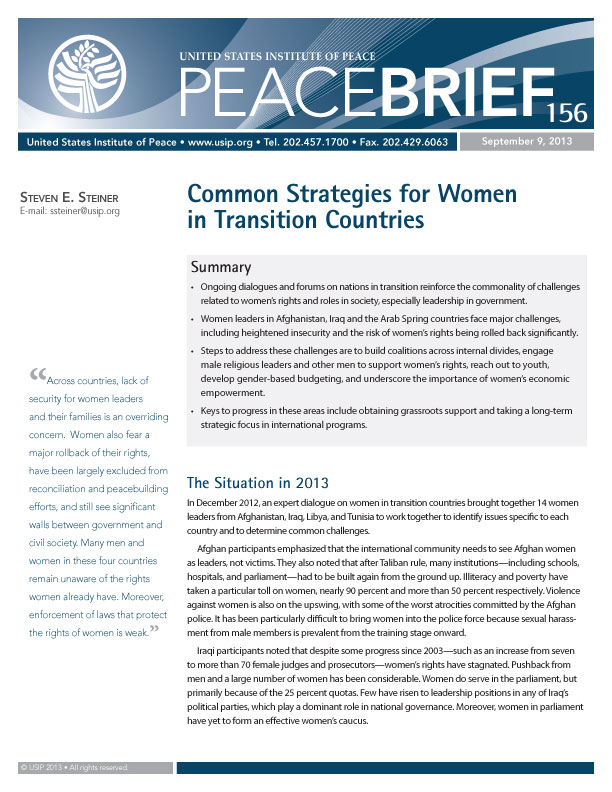 |
Common Strategies for Women in Transition Countries | September 2013 |
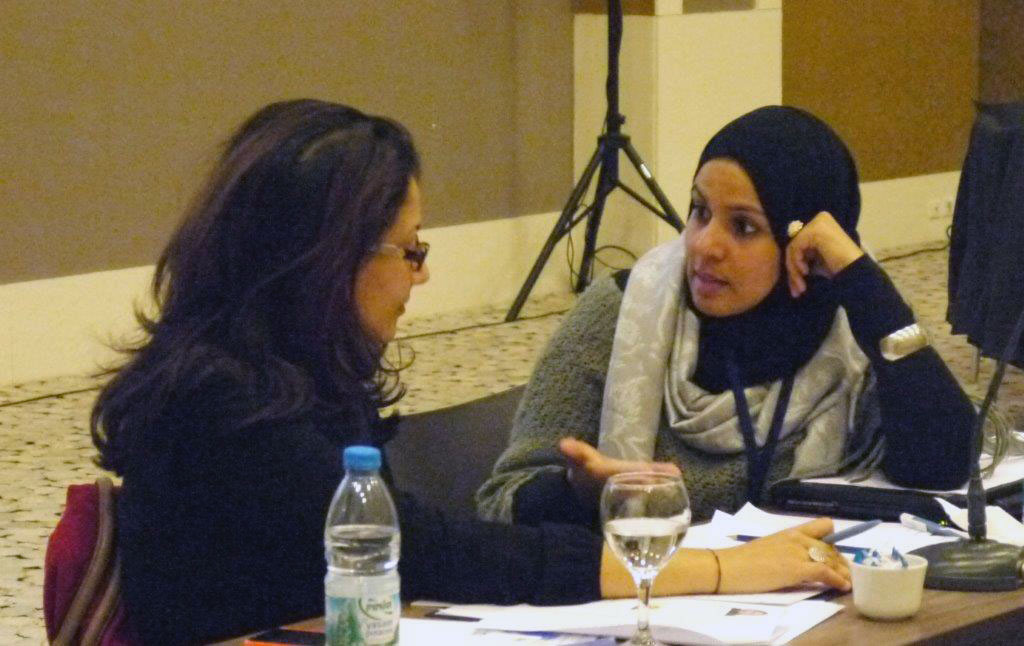 |
Expert Dialogue on Women and Peacebuilding Part II: Women Leaders and Best Practices | December 2012 |
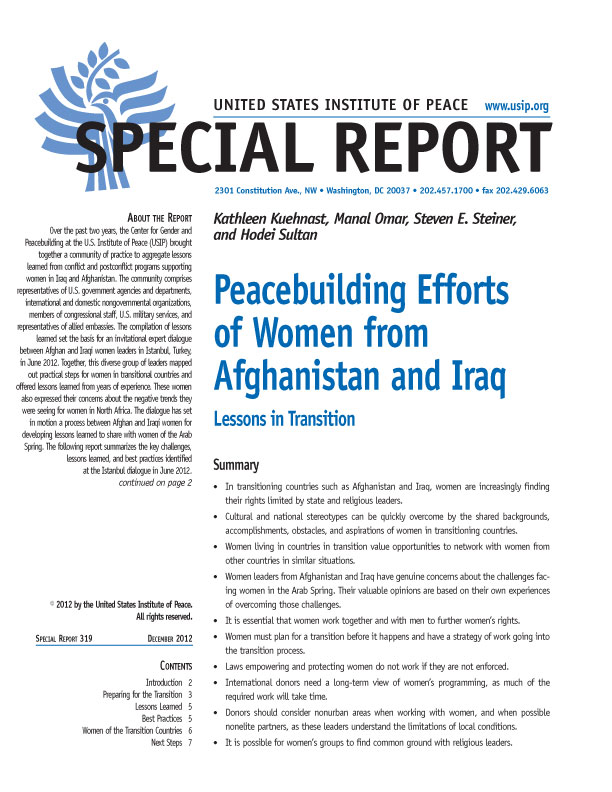 |
Peacebuilding Efforts of Women from Afghanistan and Iraq: Lessons in Transition | Special Report | November 2012 Afghan and Iraqi women leaders met earlier this year to discuss how women in North African transition countries can play a role in reshaping their societies. Based on their own experiences with transition, these leaders offered advice on what to do and what pitfalls to avoid. |
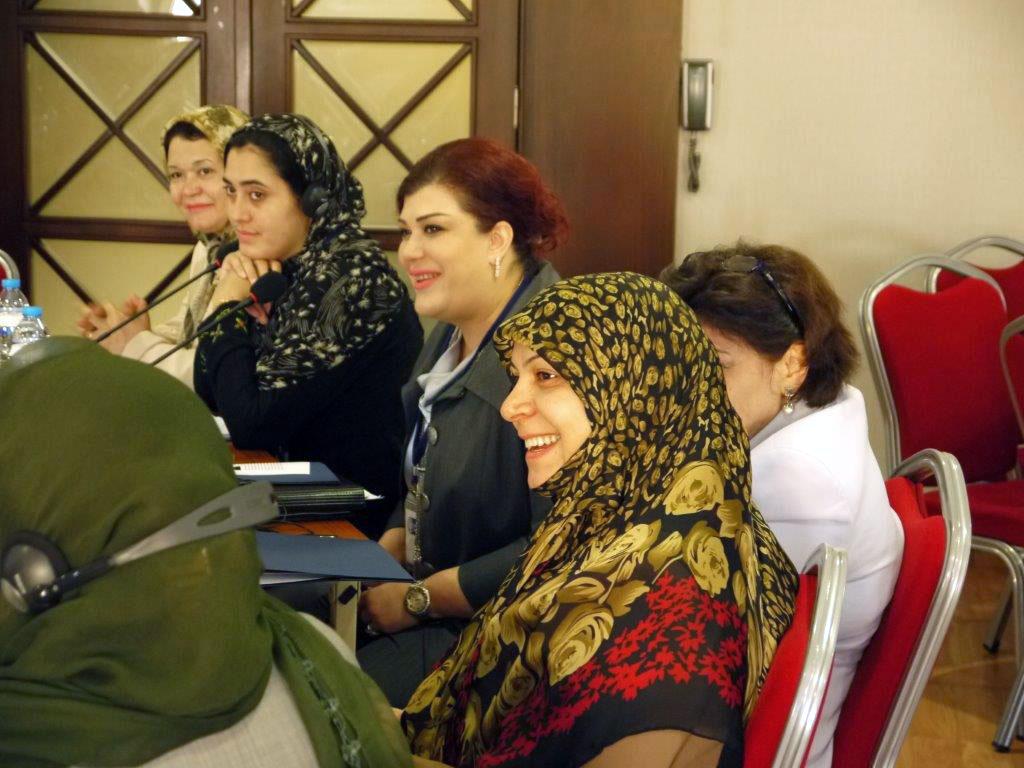 |
Expert Dialogue on Women and Peacebuilding | June 2012 |
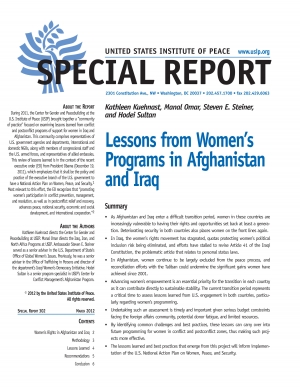 |
Lessons from Women's Programs in Afghanistan and Iraq | Special Report | March 2012 Despite years of efforts aimed at expanding women’s rights and opportunities in Iraq and Afghanistan, women in those countries face major obstacles in consolidating these gains. Recognizing that women’s empowerment contributes significantly to stability, USIP convened experts to assess what has been learned in developing women’s programs in Afghanistan and Iraq and to establish best practices for future programs in conflict zones. |




